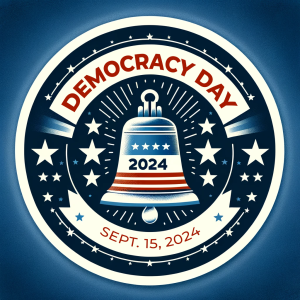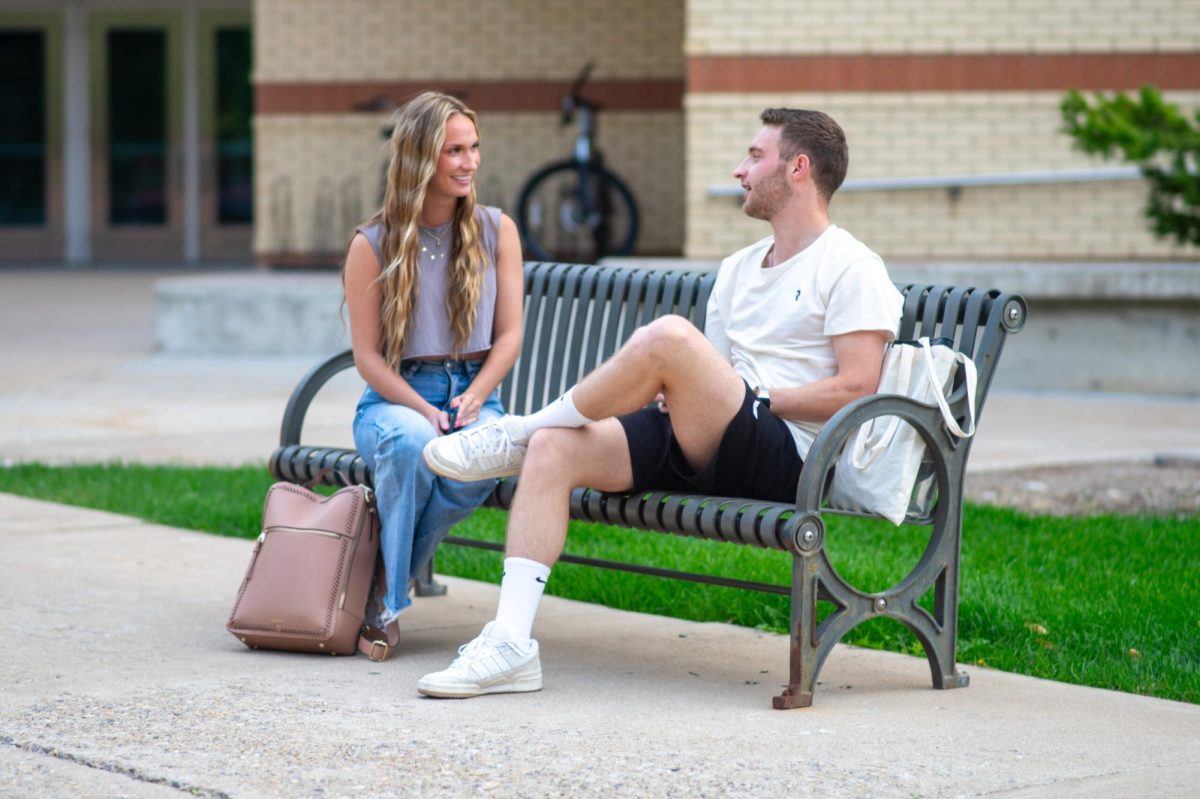This story is published as part of U.S. Democracy Day and the Utah College Media Collaborative, a cross-campus project bringing together emerging journalists from Salt Lake Community College, the University of Utah, Utah State University and Utah Tech University.
Voter turnout for young adults has been lower compared to other groups on election day. According to the Institute of Politics at the Harvard Kennedy School, half of Americans aged 18-29 stated they would “definitely be voting.” This hasn’t always translated to casted ballots.
The U.S. census showed over 80% of college students were registered to vote in 2020, but only 66% of them voted.
Many political campaigns are shifting their language and strategy to resonate with young Americans as they recognize the critical impact they can have in the election, utilizing memes, pop culture and social media as a way to effectively connect with the younger generation.
Some students at Utah State University articulated the importance of their vote in the upcoming election. Christian Barr, a junior at USU studying engineering, shared what motivates him to vote.
“We are going to fight to have a say in who we think should be involved in running our country,” Barr said. “It isn’t just about voting but about what matters to us and the people who fought to give us a say to vote in our life today.”
Since the 2022 midterm elections, over 8 million new voters will qualify to vote in November. Gen Z, people born from 1997 to 2012, make up one-fifth of the U.S. population. Media outlets and campaign strategists have poured their efforts into social media platforms such as TikTok, Instagram and X.
Emma Adams, a pre-dental sophomore, said she gets her news from a number of different sources.
“Debates are big for me,” Adams said. “I will say a lot of social media is consumed with different clips and videos from debates or interviews. I will read articles often or just communicate with my peers to see what insight that can give me or what they are thinking on different topics.”
Topics that are at the forefront for the youth include cost of living, cost of education, civil rights and climate change.
“A big thing with our generation is the power of voice that we bring,” Adams said. “We are, for the most part, a strong-minded generation, and on both sides, I love to see the opinions of people that aren’t afraid to voice it.”
Young voters have a decisive impact on the outcome of American politics. Their reach extends beyond elections. They decide what goes viral, what is cool or what kind of advertising sticks. They drive the mainstream media and pop culture that is often used as a vehicle of communication.
Many political organizations and nonprofits have diverted their efforts to high school and college students. High schools across the country have set up booths with resources, information and voter registration tools in efforts to increase their political engagement. Awareness and access is an important deciding factor in whether someone votes.
USU has hosted events allowing students to register to vote on campus. In 2020, USU celebrated the 150th anniversary of Utah women gaining voting rights with a special event that allowed students to register to vote.
In 2023, the National Federation of the Blind worked with the Lieutenant Governor’s Office and the State of Utah director of elections to allow people with a print disability to vote electronically. Utah primarily uses the mail ballot system, where everyone is mailed a ballot before the election. This raises issues for people who are not able to see the print or may have a harder time accessing polling locations.
The voter registration deadline for both online and mail-in registration is Oct. 25. Early voting begins on Oct. 22 and ends Nov. 1. Mail-in ballots must be postmarked by the day before the election.

Ashley Orduna reported and wrote this story as a student with Utah State University’s The Statesman. Her article is part of U.S. Democracy Day, a nationwide collaborative on Sept. 15, the International Day of Democracy, in which news organizations cover how democracy works and the threats it faces. To learn more, visit usdemocracyday.org.


